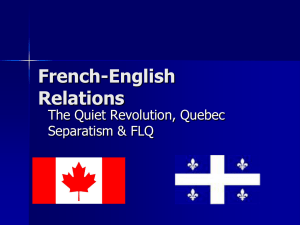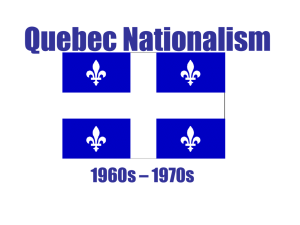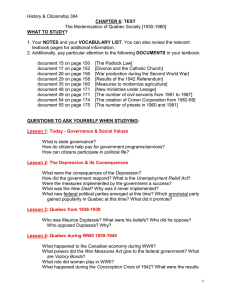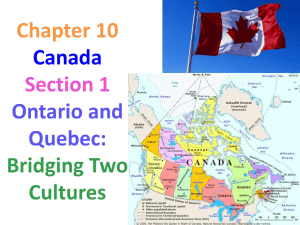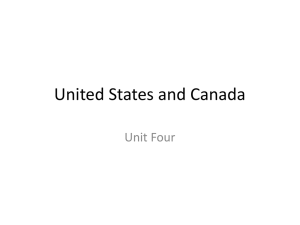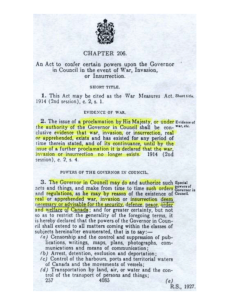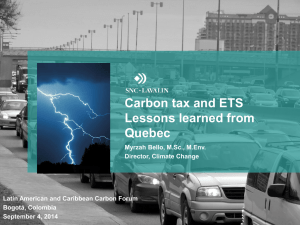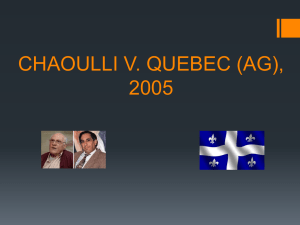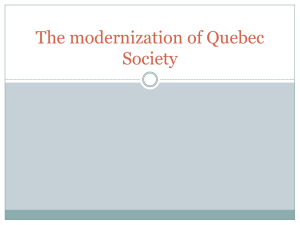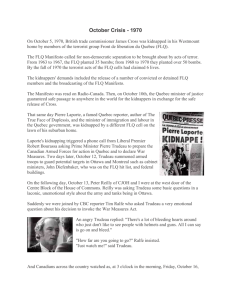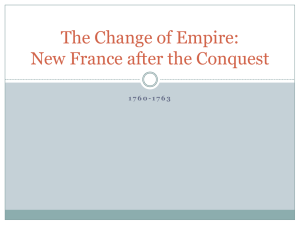Quebec`s Quiet Revolution - Winston Knoll Collegiate
advertisement
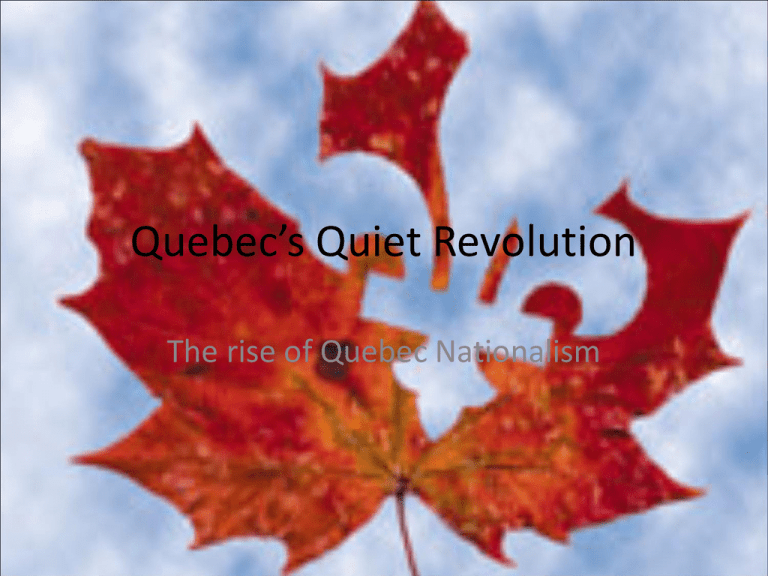
Quebec’s Quiet Revolution The rise of Quebec Nationalism Definition • A Toronto journalist coined the term to describe wide-ranging political, social, economic, and cultural changes in Québec that lasted from 1960 to 1966. Prior to the Revolution • Province was experiencing a great deal of change with a move from rural to urban life. • Duplessis’s government believed that protection and expansion of agrigulture was the way to protect Quebec society. • Duplessis stood against the “evils” of communism, materialism, atheism and trade unionism. Richard Riot • March 13, 1955 Rocket Richard was suspended for the remainder of the season including the playoffs for hitting a linesman in the face. • When the NHL president came to watch a Montreal game several days later the fans threw food and debris at him and then set off a tear gas bomb. • After the game was called a riot ensued causing $500 000 damage and 27 injuries. • The riot lasted seven hours and local coverage of it had to be forced off of the air. Effects of the Riot • The sight of French Quebeckers rioting in defense of a Quebecois cultural icon like Richard has led many commentators to believe that it was a significant factor in Quebec's Quiet Revolution of the 1960s. Quiet Revolution • Lesage’s government made a great many changes including: • Nationalizing hydroelectric utilities and forming the Hydro-Quebec • Creating a ministry of education and reforming/modernizing the education system • Taking over from the Catholic Church in the areas of health care and social services • Improving women’s rights – prior to this married women had the legal status of a minor Effects of Quiet Revolution • Quebec nationalism grew and started to turn into separatism • Quebec demanded more control over programs running in Quebec • Quebec even opened up several embassy type buildings in major world centers • All of this would lead eventually to the violence of 1970 FLQ • The Front de Liberation du Quebec (FLQ) had been founded in the early 1960s and between 1963 and 1970 had set off a number of bombs killing 6 people and wounding many more October Crisis • Oct. 5 1970 FLQ kidnaps James Cross the British Trade Commissioner • Oct. 8 FLQ Manifesto was read on the radio • Oct. 10 Pierre Laporte the Quebec Minister of Labour is kidnapped • Oct. 12 Army sent to guard Ottawa (video) • Oct. 15 Army goes into Quebec • Oct. 16 War Measures Act is proclaimed by PM Trudeau • Oct. 17 Laporte’s body is found in the trunk of a car October Crisis • Nov. 6 one of Laporte’s killers is captured • Dec. 3 James Cross is released in return for five FLQ members getting safe passage to Cuba • Dec. 28 remainder of Laporte’s killers captured – received sentences of either 20 years or life in prison depending on role • July 1980 last of Cross’s kidnappers is arrested he gets 12 months – other 5 have returned from Cuba and received similar sentences and been released by this time War Measures Act • Between Oct. 16 1970 and Feb. 3 1971 497 people were arrested under the War Measures Act. Only 62 were ever charged with anything
